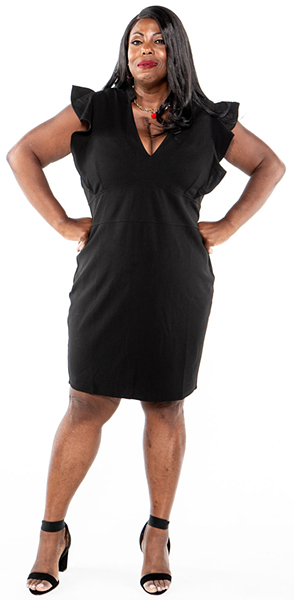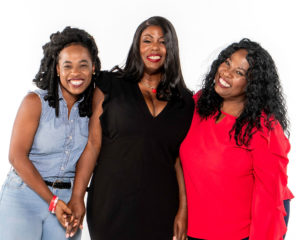Hyvelle

Soccer mom fights back after diabetes led to stroke, heart attack.
When diagnosed with type 2 diabetes at age 33, Hyvelle Ferguson Davis never suspected she’d one day be an ambassador for a national health education campaign.
Now she looks back on a 14-year journey with the disease — which included stroke, heart attack, surgeries and setbacks — as blessings of sorts and an opportunity to help others better manage type 2 diabetes and the link to heart disease, stroke and other cardiovascular issues.
Growing up, diabetes was a silent, omnipresent resident in her family’s home. Her mother had the disease but never acknowledged it.
“Black folks have illnesses nobody talks about but deal with,” said Ferguson Davis, who lives in Fort Lauderdale, Florida. “Our mom would just say, ‘I’m tired.’ I watched her deteriorate over the years, but she didn’t make it known or relevant.”
Ferguson Davis was diagnosed with diabetes while pregnant with her son Ethan. The disease caught her totally off guard. “It was surreal to me,” she said. She wanted a healthy child, so diligently followed her doctor’s orders.
But not long after giving birth, she reverted to her old ways, “eating whatever I wanted to eat, thinking my meds would make up for what I ate,” she said. “I’d been checking my blood three times a day. But after having him, I didn’t. I ate anything and everything: chicken wings, red velvet cake. There was nothing I wasn’t eating.”
She kept thinking diabetes was an old person’s disease. Then, in 2014, she had a stroke. Every two minutes, an adult with diabetes in the U.S. is hospitalized for a stroke.
“I was reading stuff backwards at work, talking weird,” Ferguson Davis said. “I came home and went to sleep. I woke up when my daughter Brittney, who was a teenager, came home from school. She said, ‘Mom, you don’t sound right.’
“She called my sister, who immediately called 911.”
Her sister and health champion, Judith Ferguson-Missick, a.k.a. “The Bulldog,” is the one who told doctors “no” when they wanted to release Hyvelle from the hospital.

“They did the tests, and two days later were ready to discharge her,” said Ferguson-Missick, 56. “I was like, ‘No. Something is wrong. People don’t have strokes and pass out for no reason.’”
Turns out Davis’ diagnosis was not a transient ischemic attack, or mini stroke —as originally suspected. Instead, she had a slow bleed in her brain. After three weeks of rehab, which included speech, occupational and physical therapy, she finally came home.
But her diabetes-related health problems weren’t over, and the link between type 2 diabetes and cardiovascular disease kept showing up. She ended up in the emergency room for unusual back pain, then suffered a major heart attack while undergoing tests. That led to quadruple bypass surgery.
More surgery followed, more setbacks.
“Every time I went to the doctor, something was always wrong,” she said. “My sister was my mouthpiece. She took control: ‘We don’t want to hear a problem. We want to hear a solution.’”
When a new doctor essentially told Ferguson Davis all she could do was go home and take her meds, she knew she had to take matters into her own hands.
“I was watching my son play in a soccer championship, and tears were coming to my face,” she said. “That’s when I started to fight. I couldn’t move much, but my mind was cognitive. I’m really religious and I believe in God. I could die tomorrow and I’d be fine. But I decided I wasn’t going to go without trying.”
She sought out blogs about strokes, about heart attacks. “I joined groups to help my diabetes and to transform me to be the woman I used to be,” she said. She also started her own group to help other women and likes to say she is “fighting the smart fight.”
“My sister is more alive than she’s ever been,” said Ferguson-Missick, who is also living with diabetes and has lost 35 pounds with Hyvelle’s motivation.
Ferguson Davis, now 47 and an ambassador for Know Diabetes by Heart, said she feels especially motivated to spread awareness among African Americans. Though she still has bad days, she’s healthier now than ever, and she encourages others to join her on the health train. The support of family, friends and community are proven to help people living with type 2 diabetes make the lifestyle and behavioral changes necessary that can lower their risks for cardiovascular disease.
“My big thing is, ‘Prayer without works is dead’,” she said. “You take your pills but you have to drink water, to go for a walk. I now live with a sense of peace in my heart knowing that I love my heart and it’s loving me back.”




